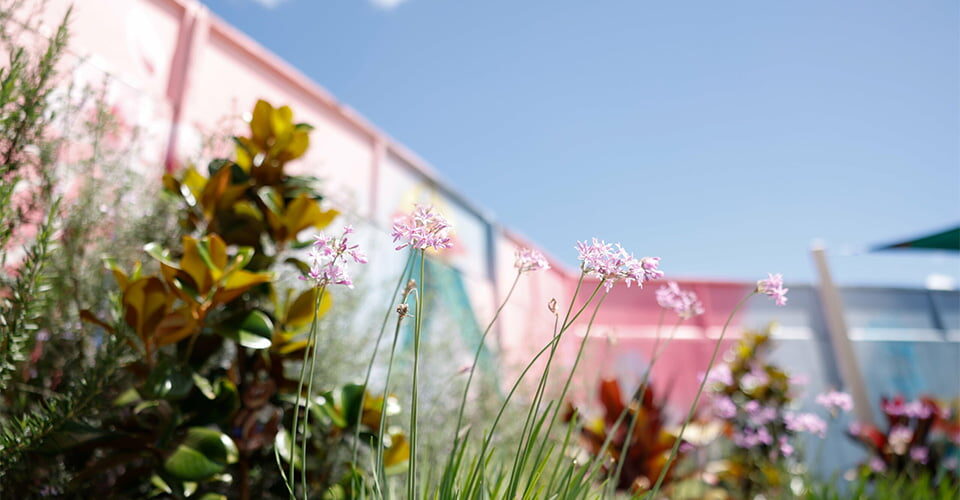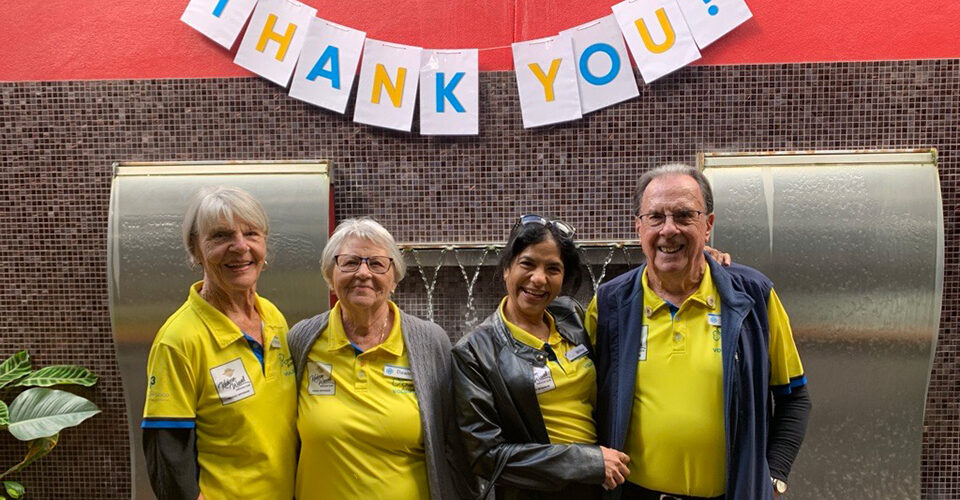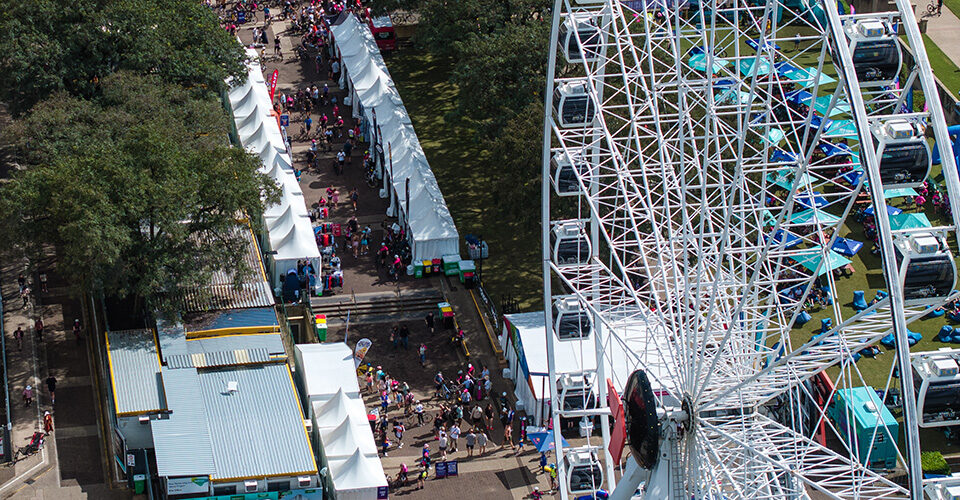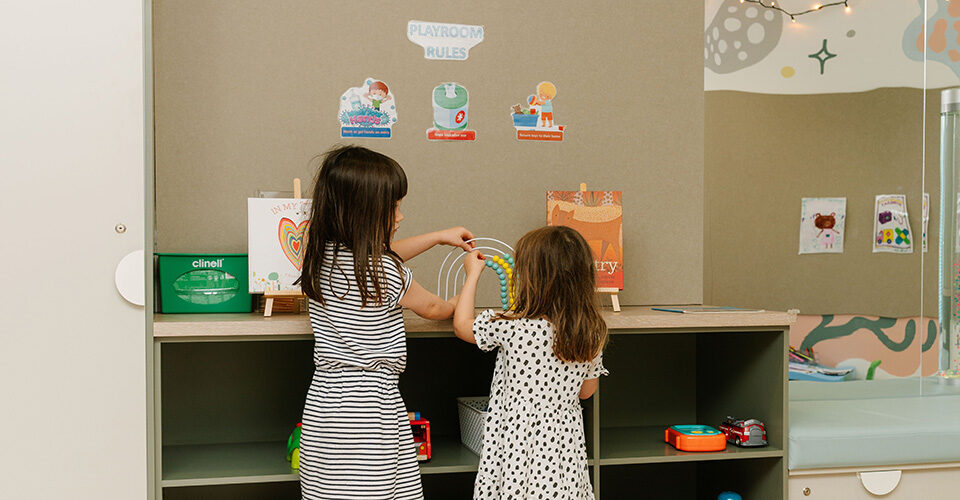Sadly, it is common for those with dementia to experience changes in behaviour and mood – and in some cases, those changes can be incredibly difficult to manage, upsetting to witness, and even turn a loved one into someone you don’t recognise.
Today there are almost half a million Australians living with dementia, and 1.6 million people involved in their care.
Many who are affected by dementia are unable to look after themselves and this may lead to them being admitted to hospital.
At The Prince Charles Hospital (TPCH), a dementia sensory garden in the Cognitive Assessment and Management (CAM) unit, is offering diversion and distraction to aid in the management of patient’s behaviours and moods.
Thanks to the generosity of the public via the The Common Good’s 2021 Giving Day, upgrades to the garden were able to be funded and the hospital staff in the TPCH CAM unit say the patients love spending time there.
“The benefits of our sensory garden on the patients that are admitted in the CAM unit are astonishing. Gardens are known to have a therapeutic effect, which is why they are so helpful to people living with dementia,” said Amy Thomson, Nurse Unit Manager, CAM unit.

In the garden, patients can become immersed in nature, feeling the textures of the plants and flowers, smell fragrant basil, rosemary, and lemon myrtle, and hear the songs of rainbow lorikeets and butcher birds that frequently visit. These sights, smells and sounds can often rekindle beautiful memories of days gone by.
The garden offers also a safe and calming space for patients in the ward, and they will often water the plants and pull out the weeds. These activities help to divert their attention from stress they may be feeling, keep them active, and offer joy and a sense of purpose.
“Our patients enjoy assisting with the gardening and increased physical activity in the elderly is also very important as it helps decrease falls and prevent injuries. When patients are exposed to the outdoor environment, it can help to alleviate depressive symptoms and contributes to the brain releasing serotonin, which promotes a sense of calm and a feeling of focus,” Amy said.
It also allows patients to maintain a level of independence, being able to access the garden and sunlight throughout the day as they wish which also has benefits on their sleep/wake cycle.
Benefits of Sensory Garden for patients with dementia at TPCH
Stepping into a garden and immersing yourself in nature can be a calming experience for many.
Enhanced sensory stimulation, like that found in the new garden at TPCH, can help patients with dementia to relax and in turn can make it easier for their carer and nurses to manage their behaviour.
Staff at the hospital will often guide patients into the garden when they need to deescalate challenging situations.
“When someone becomes upset and unsettled, bringing them into an area that’s more spacious where there is some cognitive stimulation is a far gentler way to calm down and help our patients.” said Khera Kim, Nurse Practitioner, Cognitive Assessment Management Ward TPCH.
It also provides a pleasant environment for patients to spend time with their families.
Some of the main benefits of sensory gardens for patients with dementia include:
- All the senses are stimulated and can provoke memories:
- Sight – bright colours, flowers, beautiful butterflies
- Sound – buzz of birds, bees and insects and the sounds of wind blowing
- Touch – feel the different textures of the leaves and petals
- Smell – herbs and flowers bring a range of aromas
- Taste – tasting herbs and vegetables that are grown in the garden
- Positive impacts on self-esteem and self-confidence
- Greenery is linked to nature and is considered calming
- Assists with sleep/wake cycles being exposed to natural daylight
- Promotes mobility, being active and exercise, and encourages functional movements
- Provides a meaningful activity for them to perform where they can feel in control
- Boosts social interaction and encourages teamwork
- Encourages relaxation and helps to reduce stress
Giving Day Funding and the Dementia Sensory Garden
Last year, the staff in the CAM unit raised about $17,000 in the lead up to Giving Day to ensure the sensory garden and its benefits could bloom for the patients they care for.
Sadly, dementia is a condition that is all too well-known and impacts many people in the community. In turn, this meant that there was an outpouring of support towards the CAM unit’s fundraising efforts simply by them sharing their stories and highlighting the impacts that this important garden project would have. Another project hoping to be supported through Giving Day this year is a village-like community space in the ward, aptly named ‘Charlie’s Village’. This space will include a range of familiar facades, such as a post office, bakery, and barber. It’s hoped that this updated environment will provide a sense of familiarity and stimulate memories for the patients in the ward and allow them to feel moments of comfort through those recognisable settings.

Help The Prince Charles Hospital and Caboolture Hospital provide the best possible care and help support patients impacted by dementia. This Season of Giving donate to The Common Good before November 30 to double your impact.









